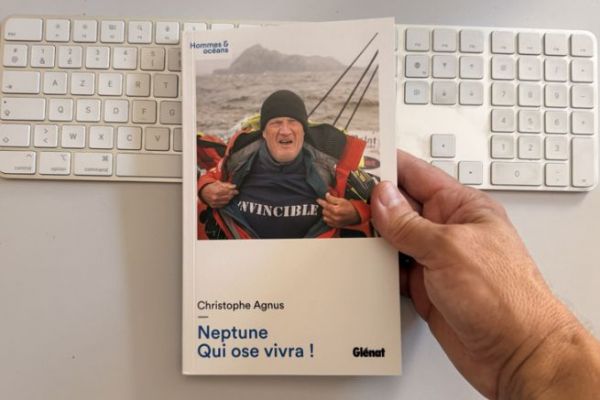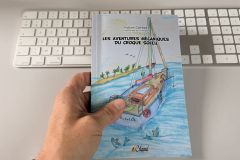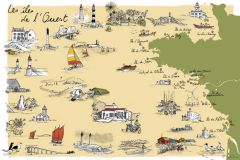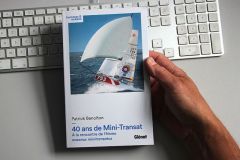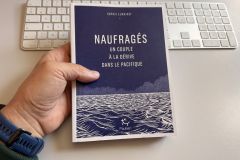Christophe Agnus's book *Neptune, qui ose vivra! by Christophe Agnus tells an unusual story: that of a round-the-world yacht race by a crew member suffering from Parkinson's disease (among other things...). The author, accustomed to maritime subjects and suspense novels, delivers here a tale rooted in the reality of ocean racing, far from the heroic or fantasized figures. Through Bertrand Delhom's experience, the challenges of sailing with a crew who don't know each other, of life on board an old boat, and of pushing back physical limits come to the fore.
Neptune: between heritage and ocean racing
Neptune is an 18.60-meter-long racing yacht built in 1977 for Whitbread. Classified as a boat of heritage interest, she underwent a major refit in 2022 to enable her to take part in the 2023 Ocean Globe Race. This race, which forbids the use of GPS and weather routing, imposes traditional, demanding navigation, particularly trying on a yacht of this generation. The book gives a precise account of the technical constraints involved in preparation and navigation, while describing a heavy, robust but aging boat, whose every maneuver requires energy and coordination.
Navigation without electronics: back to basics
In the tradition of the original Whitbread, the Ocean Globe Race imposes dead reckoning navigation, with sextant, paper charts and no weather forecast. This return to the fundamentals of sailing is well explained in the book, which also shows the limits of this step backwards. Conditions, notably SSB transmissions, are no longer used at all, presenting a real information deficit compared with the race run 50 years earlier. The organizer's lack of impartiality is also highlighted.
In the midst of all this, Bertrand Delhom, despite his pathology, is fully integrated into the crew, standing watches, taking part in maneuvers and even lifting the morale of the crew, becoming its glue in the face of some turmoil.
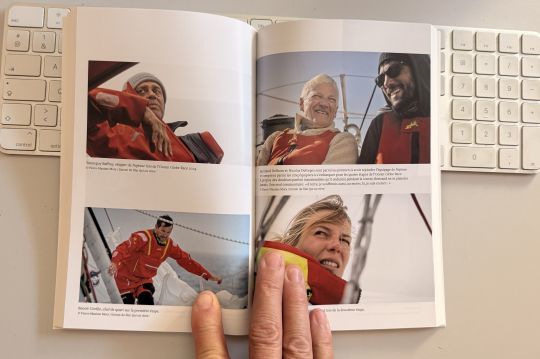
Parkinson on board: daily life, fatigue and disease management
The most original part of the story is the confrontation between neurodegenerative disease and the demands of ocean sailing. Bertrand Delhom is not a passenger, but a crew member in his own right. His pathology requires slower movements, pain and persistent fatigue. The book describes how the crew organizes itself without over-protecting him, in a logic of active solidarity, without paternalism. The role of sport in slowing down the disease is discussed, not as a medical solution, but as a lifestyle choice.
Crew cohesion and human issues on board
Sailing with six people for eight months requires meticulous organization. The story recounts the tensions, the promiscuity, the latent or expressed conflicts. Neptune becomes a social microcosm, where everyone has to deal with each other, despite exhaustion or seasickness. Christophe Agnus succeeds in showing the complexity of life on board, far from any idealization, by drawing on the personal accounts of the crew members.

Rigorous writing at the service of reality
Christophe Agnus's writing remains sober and precise, without seeking easy emotion. We find his attachment to the maritime world and its discreet figures, supported by numerous quotations drawn from his maritime culture. A story that is much more than a simple logbook of a round-the-world race, but a lesson in how not to hesitate to follow your dreams.
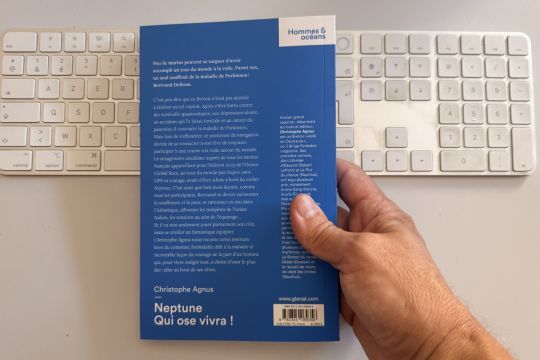
Neptune, he who dares will live! - Chritophe Agnus
- Editions Glénat
- Publication date: September 17, 2025
- 14 x 22.5 cm
- 184 pages
- 19,95 ?

 /
/ 